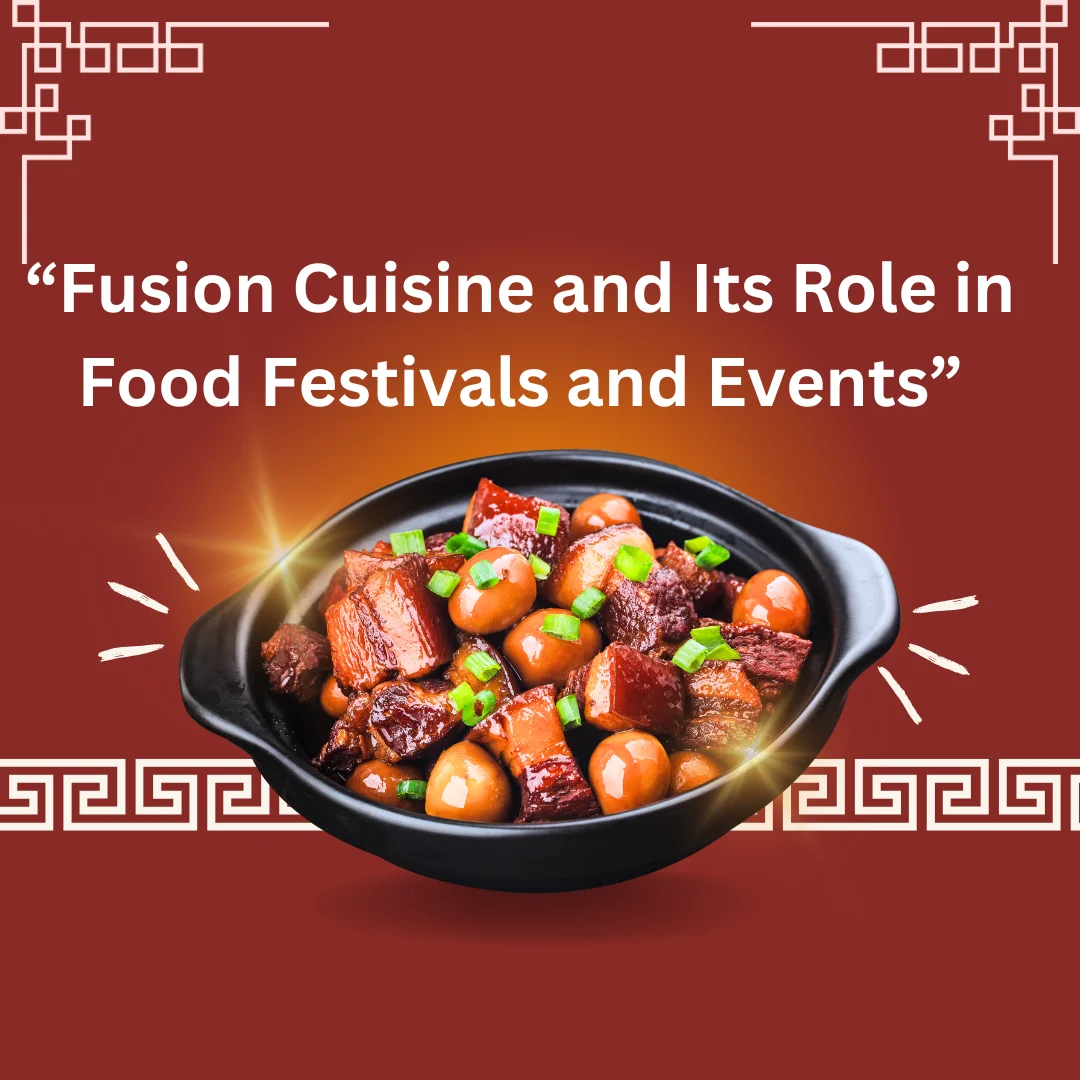Food festivals and events are vibrant celebrations of culinary creativity and cultural exchange, offering a platform for diverse culinary traditions to come together. In recent years, fusion cuisine has emerged as a significant trend in these gatherings, captivating audiences with its innovative combinations of flavors, ingredients, and cooking techniques. By blending elements from various culinary traditions, fusion cuisine not only reflects the globalized nature of the modern food scene but also plays a crucial role in enhancing food festivals and events. This article explores the impact of fusion cuisine on these occasions and its contributions to the broader culinary landscape.
The Essence of Fusion Cuisine
Fusion cuisine involves combining ingredients, flavors, and techniques from different culinary traditions to create new, exciting dishes. It represents a culinary dialogue between cultures, reflecting a world that is increasingly interconnected. At food festivals and events, fusion cuisine stands out for its creativity and ability to surprise and delight attendees with unexpected flavor profiles and presentations.
Fusion Cuisine in Food Festivals
- Showcasing Culinary InnovationFood festivals are platforms where chefs and culinary artists can showcase their creativity and push the boundaries of traditional cooking. Fusion cuisine, with its emphasis on experimentation and innovation, often features prominently at these events. For example, a festival might highlight a dish that merges traditional French cooking techniques with Japanese ingredients, offering attendees a novel gastronomic experience that showcases the chef’s culinary ingenuity.
- Attracting a Diverse AudienceFusion cuisine has a broad appeal that attracts food enthusiasts from various backgrounds. By offering dishes that blend flavors from different cultures, festivals can cater to a wide range of tastes and preferences. For instance, a food festival featuring a blend of Indian spices and Latin American street food can appeal to both fans of traditional Indian cuisine and those who enjoy Latin American flavors, creating a diverse and inclusive atmosphere.
- Encouraging Cultural ExchangeFusion cuisine acts as a bridge between cultures, facilitating cultural exchange and understanding. At food festivals, dishes that combine elements from different culinary traditions can spark conversations and foster appreciation for diverse food cultures. For example, a dish that blends Korean barbecue with American barbecue techniques can lead to discussions about the origins of these culinary practices and how they have evolved over time.
- Highlighting Global TrendsFood festivals often reflect global culinary trends, and fusion cuisine is a significant trend in the contemporary food scene. By featuring fusion dishes, festivals can highlight the latest culinary innovations and showcase how global influences are shaping the future of food. This exposure can help both chefs and food producers stay ahead of trends and engage with an audience eager to experience the latest in culinary experimentation.
Fusion Cuisine at Events
- Corporate and Private EventsFusion cuisine can elevate corporate and private events by offering unique and memorable dining experiences. Whether it’s a business conference, a product launch, or a wedding, incorporating fusion dishes can add a touch of sophistication and excitement to the event. For example, a corporate event might feature sushi rolls with a Mediterranean twist or a wedding reception might offer tapas with Asian-inspired flavors, creating a culinary experience that reflects the event’s theme and audience.
- Culinary Competitions and ShowcasesFusion cuisine is often featured in culinary competitions and showcases, where chefs compete to create the most innovative and delicious dishes. These events provide a stage for chefs to demonstrate their skills in blending flavors and techniques from different cuisines. Judging panels and audiences alike appreciate the creativity and technical prowess required to execute successful fusion dishes, making them a highlight of culinary competitions.
- Educational Workshops and DemonstrationsFood festivals and events frequently include workshops and cooking demonstrations that focus on fusion cuisine. These educational sessions offer attendees a chance to learn about the principles of fusion cooking, experiment with new ingredients, and gain insights into the creative process behind blending culinary traditions. Workshops might cover topics such as integrating Asian spices into classic French dishes or using Latin American ingredients in traditional Italian recipes.
The Impact of Fusion Cuisine on Food Festivals and Events
- Culinary Creativity and InnovationFusion cuisine encourages chefs and food vendors to think outside the box and experiment with new combinations of ingredients and techniques. This creativity contributes to the dynamic and evolving nature of food festivals and events, ensuring that they remain exciting and relevant to contemporary food culture.
- Enhanced Food ExperiencesBy offering unique and unexpected flavor combinations, fusion cuisine enhances the overall food experience at festivals and events. Attendees have the opportunity to taste dishes that challenge their culinary expectations and broaden their palates, leading to a more engaging and memorable event experience.
- Global Culinary DialogueFusion cuisine fosters a global culinary dialogue, allowing for the exchange of ideas and techniques between different food cultures. At food festivals and events, this dialogue is not only celebrated but also facilitated, as chefs and attendees come together to explore and appreciate the diverse influences that shape modern cuisine.
Conclusion
Fusion cuisine plays a vital role in food festivals and events by showcasing culinary innovation, attracting diverse audiences, and fostering cultural exchange. Its ability to blend flavors, ingredients, and techniques from various culinary traditions makes it a standout feature at these gatherings, offering unique and memorable dining experiences. As food festivals and events continue to evolve, fusion cuisine will undoubtedly remain a central element in celebrating and exploring the rich tapestry of global food culture.
